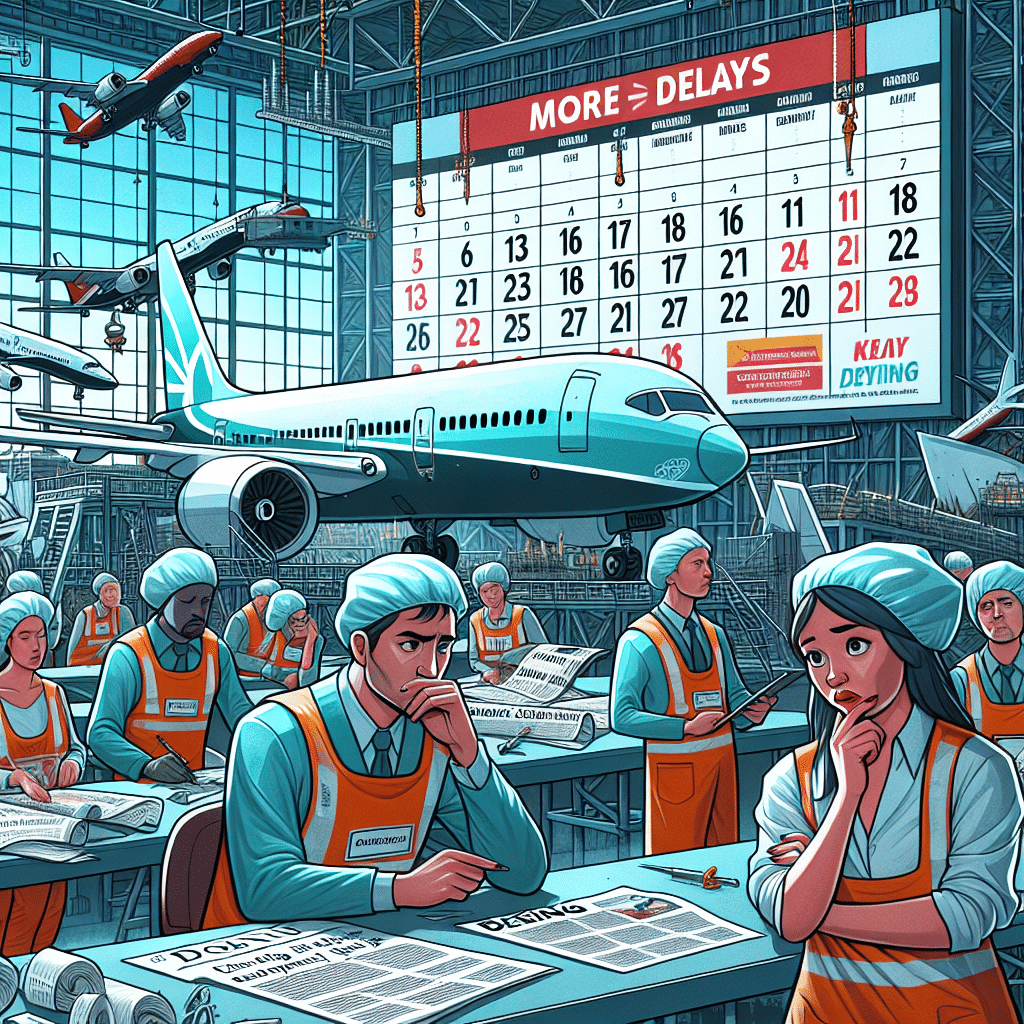[adrotate group="2"]
The aviation sector is preparing for another challenging year, as Boeing faces ongoing delivery delays and supply chain issues, which are expected to persist into 2025, according to aviation consultants.
Sunday marked the one-year anniversary of an incident in which a door panel detached from a Boeing 737 Max 9 operated by Alaska Airlines, raising renewed concerns about Boeing’s safety and quality practices.
In response, Boeing has implemented several measures, including mandatory training for its workforce and increased inspection protocols, as stated in a company announcement last Friday. They have also enhanced their “Speak Up” system to better encourage employees to voice concerns about workplace issues.
However, aviation consulting firm Boyd Group International’s president Mike Boyd expressed skepticism about these changes. Speaking on “Squawk Box Asia” on Monday, he remarked, “The entire board of directors should have been fired. The new CEO and his team claim they are making changes, but this is a deeply rooted problem.”
Due to delays in deliveries from Boeing, airlines like Southwest, Wizz Air, and Ryanair are forced to spend money on refurbishing aircraft that they had intended to retire, Boyd noted.
“Buckle up; it’s going to be a very turbulent year ahead,” he warned.
Boyd added that Boeing is at risk of losing significant market share to Airbus, suggesting the company may eventually become a “secondary player” in the industry.
U.S. Transportation Secretary Pete Buttigieg stated on Monday that Boeing has “much more” work to do, according to Reuters.
“The cultural transformation at Boeing is very much a work in progress,” he said. “The effectiveness of that change can only be evaluated over time by their ability to consistently improve outcomes.”
OAG’s chief analyst, John Grant, predicted that measurable improvements at Boeing are not likely to be realized before the end of 2025 at the earliest.
“Considering regulators are closely monitoring the company and new processes are being implemented, it’s premature to say that the situation is improving,” he observed. “On a positive note, from an operational standpoint, things have not worsened.”
However, he added, “financial performance and labor relations present a different challenge.”
Boeing has not posted an annual profit since 2018 and faced another setback after its machinists went on a seven-week strike that ended in November, resulting in a 38% wage increase.
A Boeing spokesperson informed CNBC that the company is focused on stabilizing its operations and executing its “Safety and Quality Plan.” They highlighted various initiatives undertaken in 2024, including leadership changes and the acquisition of Spirit AeroSystems, as well as expanding its South Carolina site to boost production of the 787 aircraft.
Beyond Boeing
According to Brendan Sobie, an independent analyst from Sobie Aviation, the challenges in the aviation sector extend far beyond Boeing.
“The issues encompass the entire ecosystem surrounding the industry, from spare parts shortages to engine maintenance,” he explained.

“The current situation has been extremely challenging, and there are no clear indicators that it will improve in the near future,” Sobie stated. “These issues will take years to resolve, not just one year.”
Sobie noted that airlines are particularly frustrated with reliability and maintenance issues arising from engine manufacturers Pratt & Whitney and Rolls-Royce.
On the brighter side regarding Pratt & Whitney’s issues, he suggested that “the worst may be behind us.”
What this means for travelers
Engine failures are compelling airlines, such as Hawaiian Airlines and Spirit Airlines, to ground parts of their fleets, Boyd stated.
“The engines simply aren’t available,” he said, citing Wizz Air’s decision to ground 40 aircraft for the year.
This situation will likely make finding low airfare deals more challenging in 2025. “I don’t think even Ryanair’s CEO, Michael O’Leary, can guarantee cheaper fares,” he remarked.
Scott Keyes, the founder of the air travel website Going, predicted that airfares will likely rise in 2025. He detailed the trend in flight costs within the U.S. since the Covid-19 pandemic:
- 2020: -17%
- 2021: -4%
- 2022: +36%
- 2023: -12%
- 2024: +5%
Sobie added that the capacity issues stemming from grounded flights might be mitigated by an increase in overall flight numbers, especially in Asia-Pacific, where the industry continues to recuperate from the pandemic.
He explained that airfares are normalizing to a level that is higher than pre-pandemic fares but lower than the peak levels of 2022. However, ongoing costs and supply chain hurdles remain. While some improvements may occur this year, “the overarching challenges still persist.”





